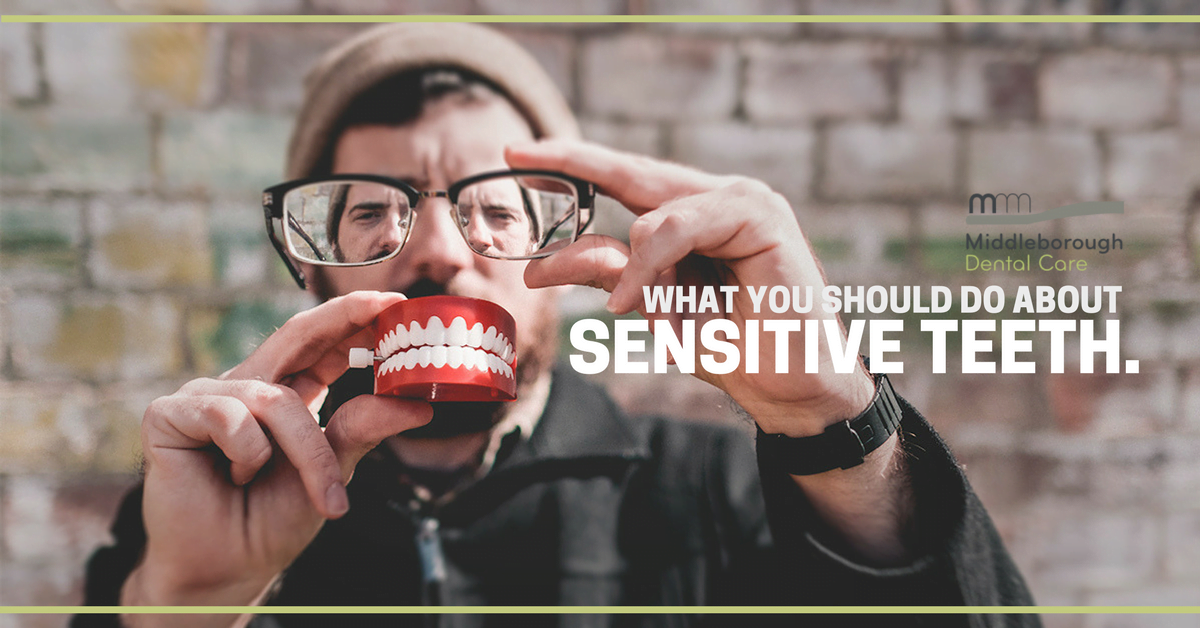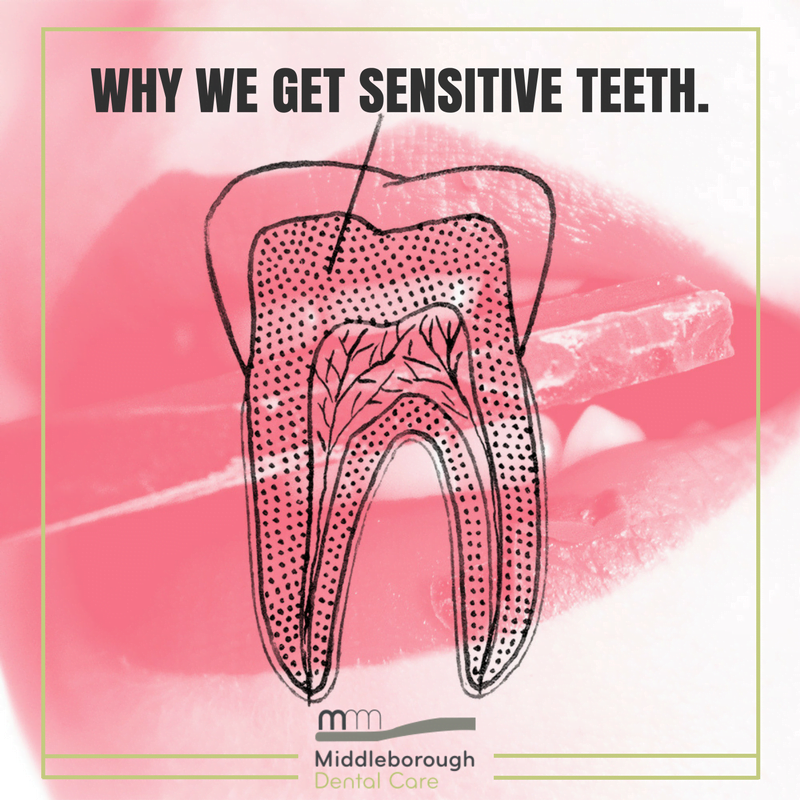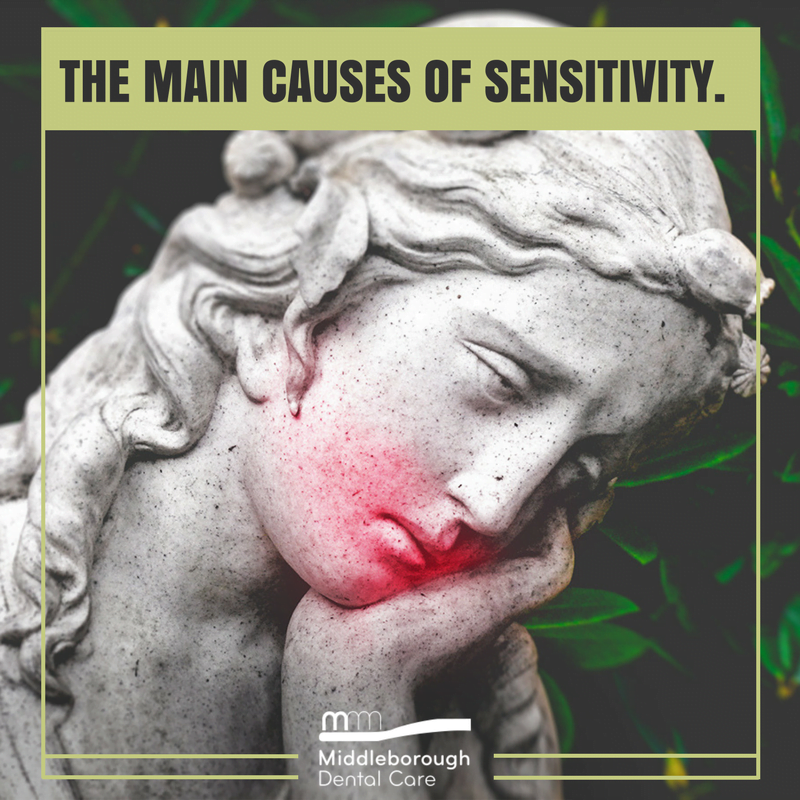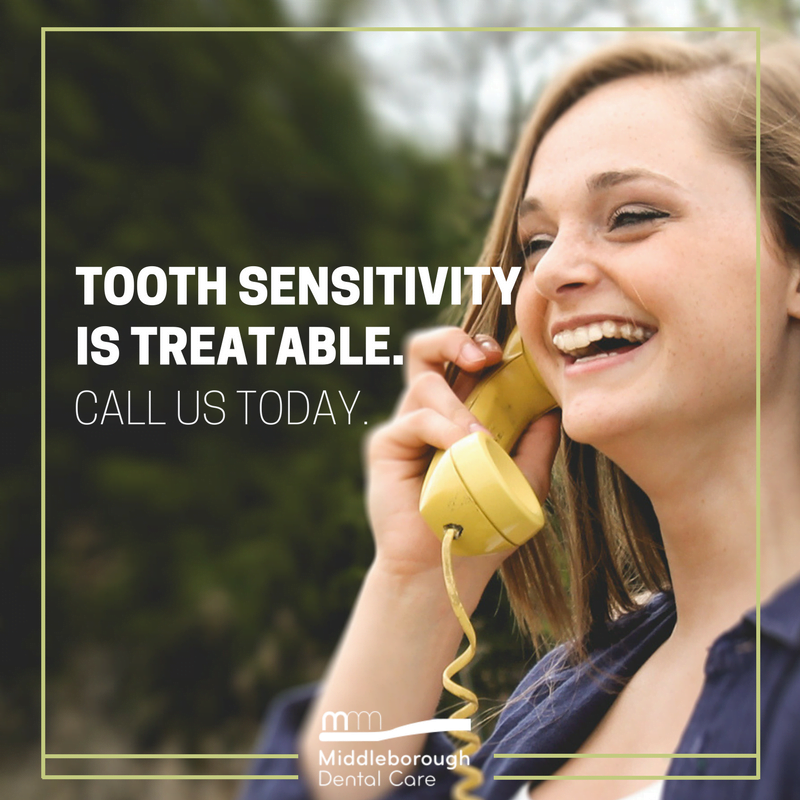
What you should do about sensitive teeth
A lot of people suffer from sensitive teeth, some briefly and intermittently, others more regularly.
If you’re one of those that has the occasional tooth twinge, and especially if you consciously avoid hot or cold foods for fear of that searing nerve pain, you should make an appointment with your dentist sooner rather than later.
We can help you figure out the cause of your nerve pain and help you do something about it.

Why we get sensitive teeth
Tooth enamel is the strongest material in your body. It has to be, because underneath it, inside each tooth, is dentin, which contains microscopic tubules filled with tiny nerve endings.
The enamel protects the dentin in the crown portion of your tooth – the part above the gum line – while the dentin extending down to the root of each tooth is protected by a layer of cementum.
What this means is that any damage to a tooth’s enamel or exposure of the tooth below the gum line brings the dentin, and its hypersensitive nerve endings, closer to the surface where they can feel things, like extremes of heat, cold, even sweetness.

The main causes of sensitivity
There are a number of things that can damage tooth enamel or wear down your gums in a way that can lead to sensitivity, but here are a handful of the most common causes:
Brushing teeth too vigorously – Brushing your teeth with too much force and/or using a hard-bristled toothbrush can wear down the protective tooth enamel, over time. You’re never too young or old to get a few lessons in correct brushing technique (did you know that side-to-side brushing at the gum line can wear down the enamel?).
Grinding teeth – Even though tooth enamel is the strongest substance in your body, grinding your teeth can wear down the enamel. After all, you’re rubbing the strongest substance in your body against your opposite teeth! If you grind your teeth while you sleep, a custom mouth guard might be the answer.
An acidic diet – Highly acidic foods like citrus fruits, tomatoes, yogurt, sour cream, and aged cheeses, and acidic drinks such as orange juice, sports drinks, wine, and carbonated drinks aren’t great for your teeth, so you should moderate your intake of those foods and drinks.
An excessively sugary diet – Eating the sorts of sugary treats that can prompt the growth of bacteria is another thing to avoid or, at least, minimise. Things like cake, donuts, and biscuits tend to get all in and around your teeth and gums, and if left for too long the bacteria grows, leading to gum erosion.
Poor dental hygiene – It goes without saying that you need to look after your teeth. The key is having a twice-daily brushing and flossing routine to prevent a build up of plaque, particularly along the crucial gum line. Even with a good dental hygiene regimen, it’s hard to get rid of all the plaque, which is why we recommend a professional scale and clean by your dentist twice a year.
Receding gums – If you have gum disease or brush too harshly, your gums might recede over time. This is where the sensitive nerve branches that live in your teeth’s roots begin to get exposed, which generally equals constant sensitivity.
Tooth damage – A cracked tooth or a leaky filling is pretty much another recipe for constant nerve pain. Don’t let even the smallest chip or crack get worse. See your dentist immediately.
Dental care products – Some teeth are more sensitive than others to the chemicals in tooth-whitening toothpastes, while some over-the-counter mouthwashes and rinses contain alcohol and other chemicals that can make your teeth more sensitive.

Tooth sensitivity is treatable
The first thing to understand if you have any sensitivity is that it’s more likely than not to get worse if not treated, so even if the discomfort is enough for you to worry about how it will feel if you get treatment, keep in mind that the treatment is going to stop you having ongoing issues.
Come in to see us so we can determine the most likely cause of your sensitivity and the best solution for your situation.
Once we’ve found the problem, your dentist might apply topical treatment or place restorations, if required. Even something as simple as changing your toothpaste could make a big difference.